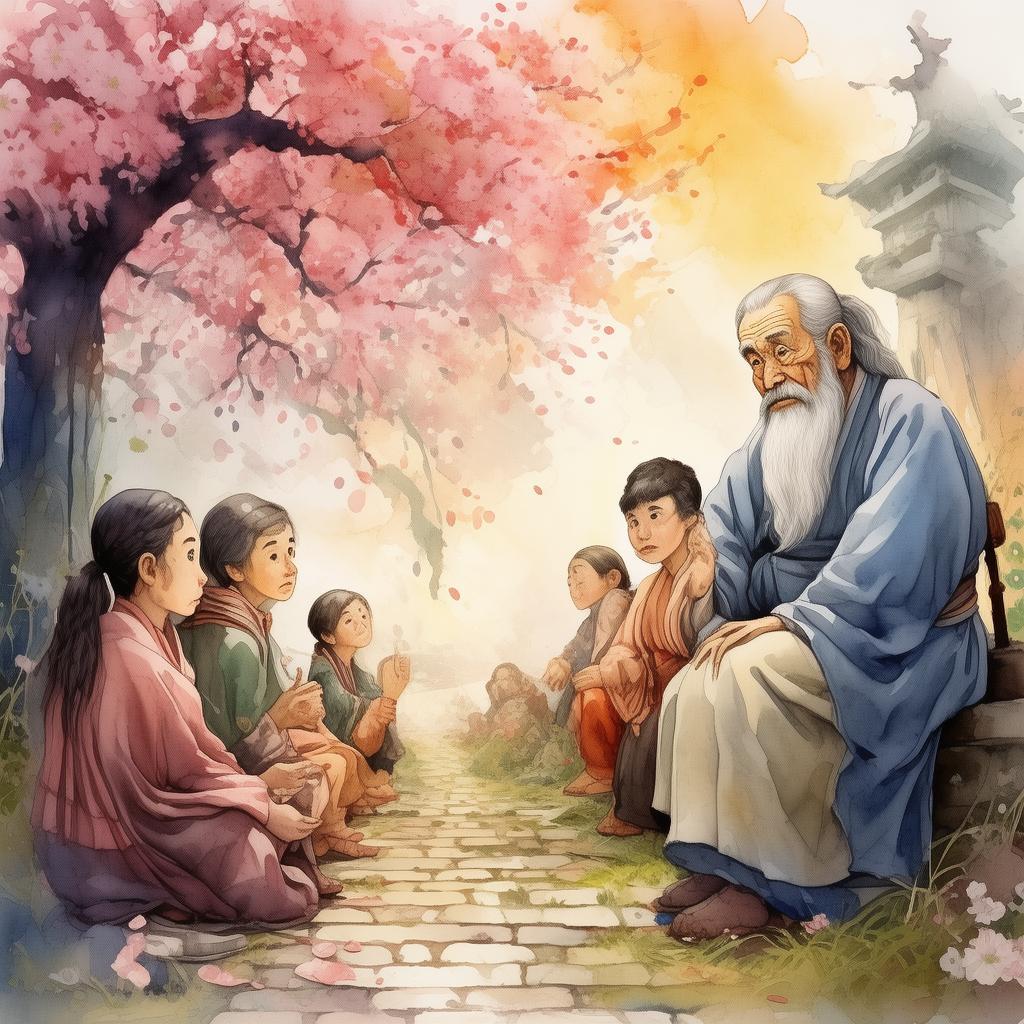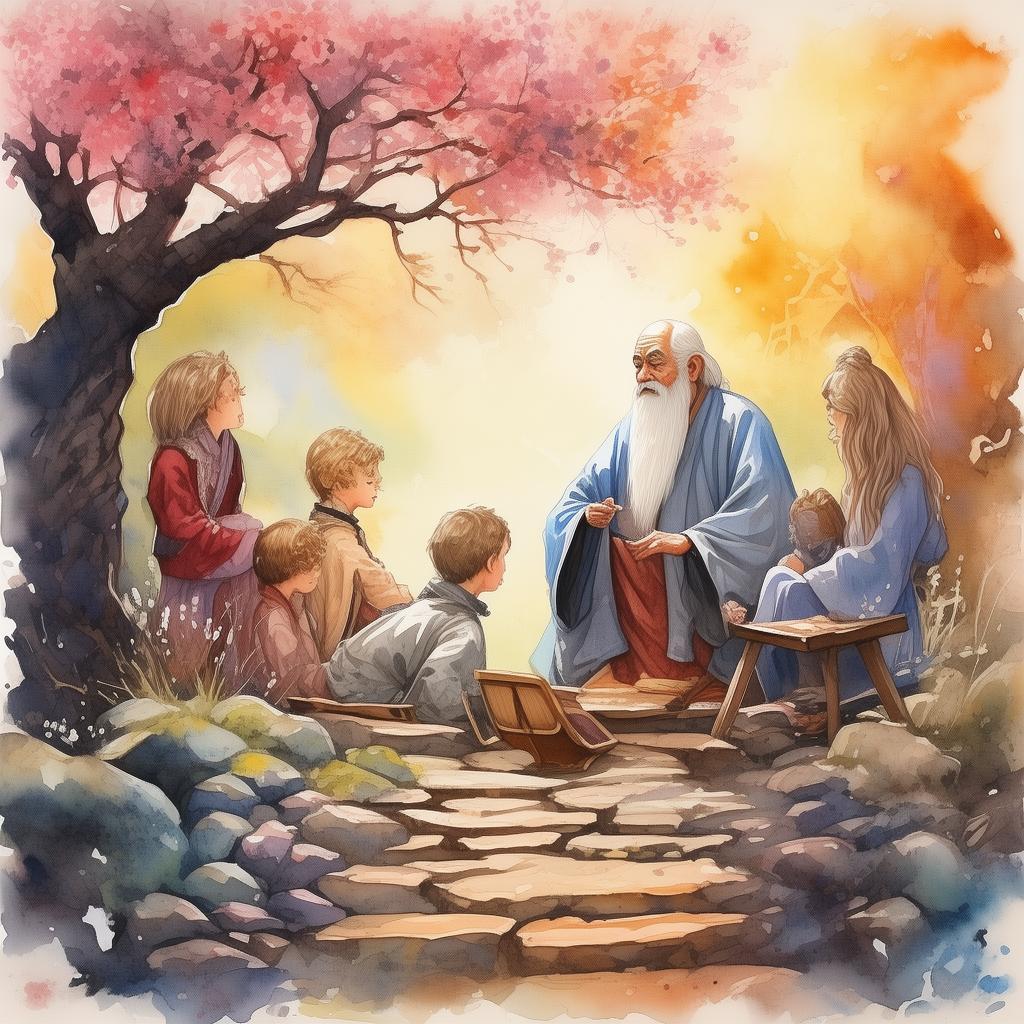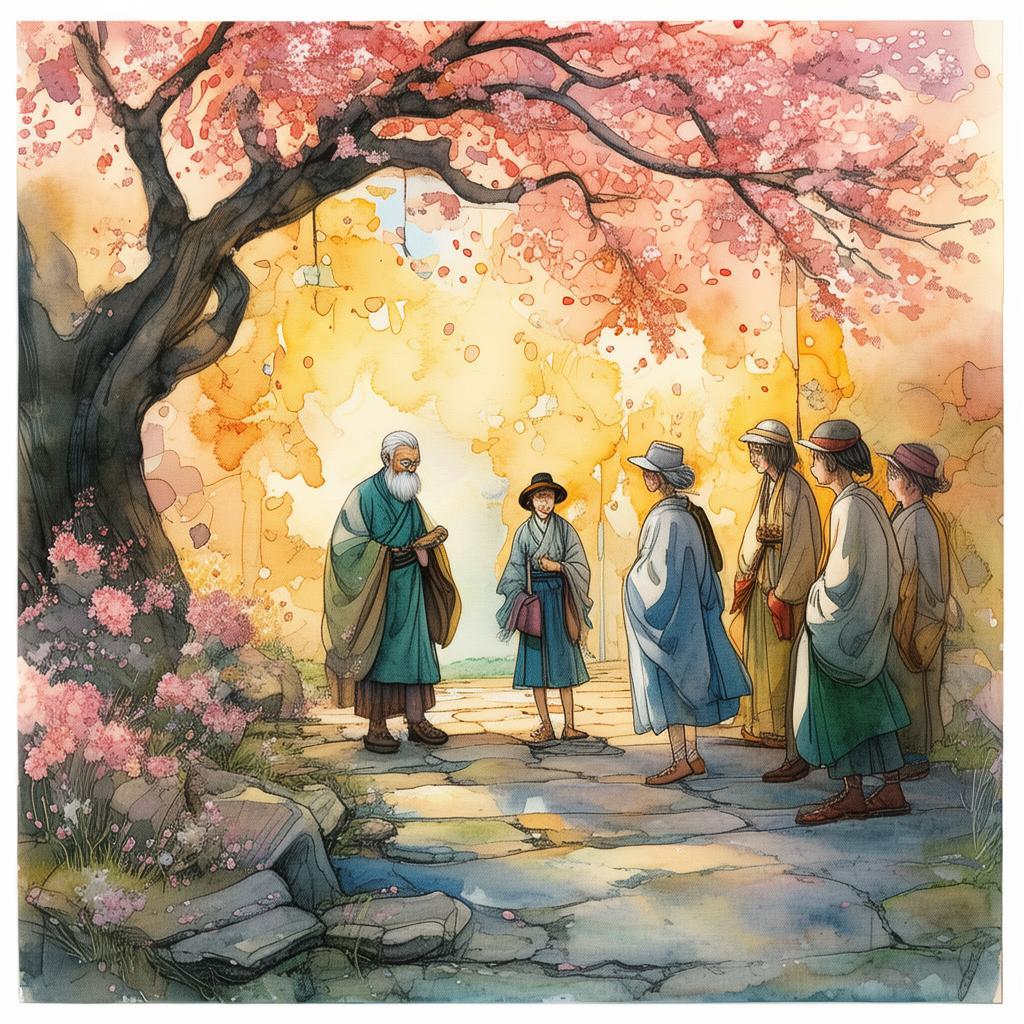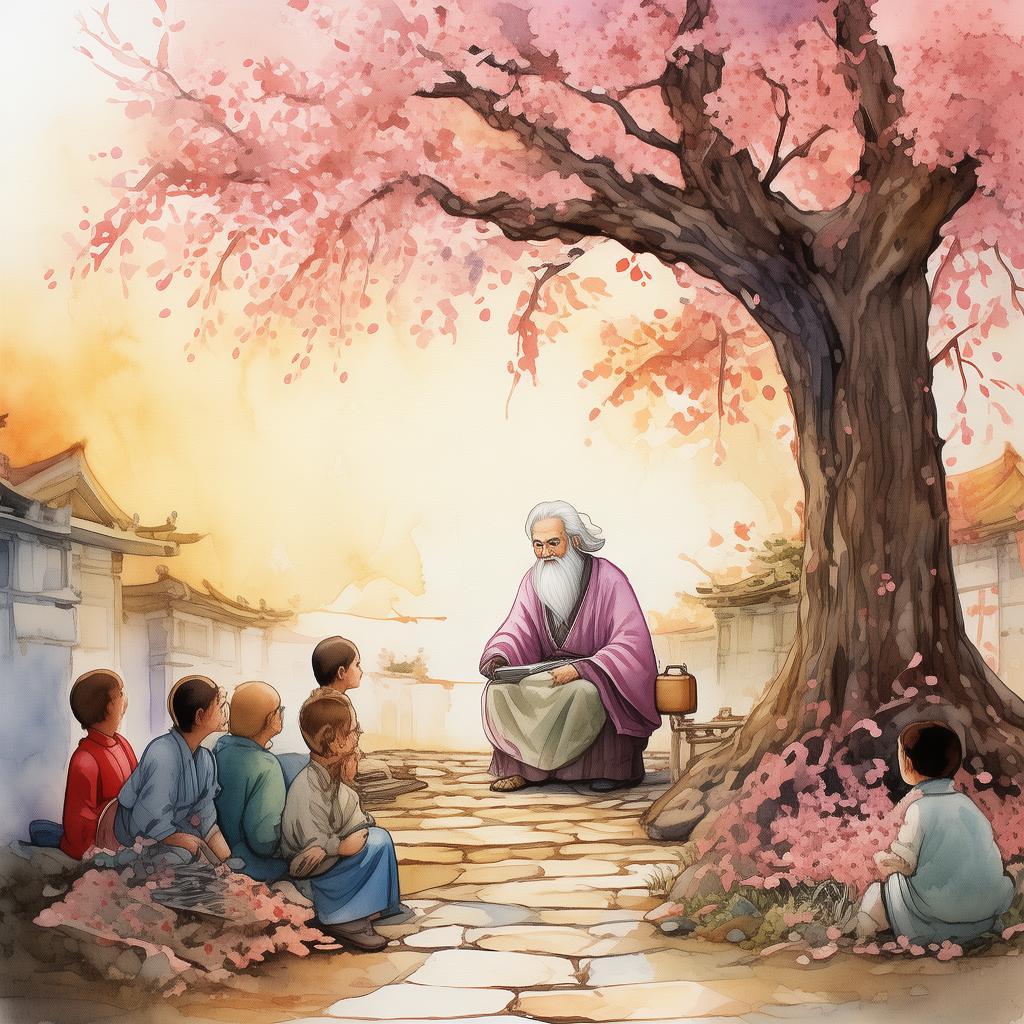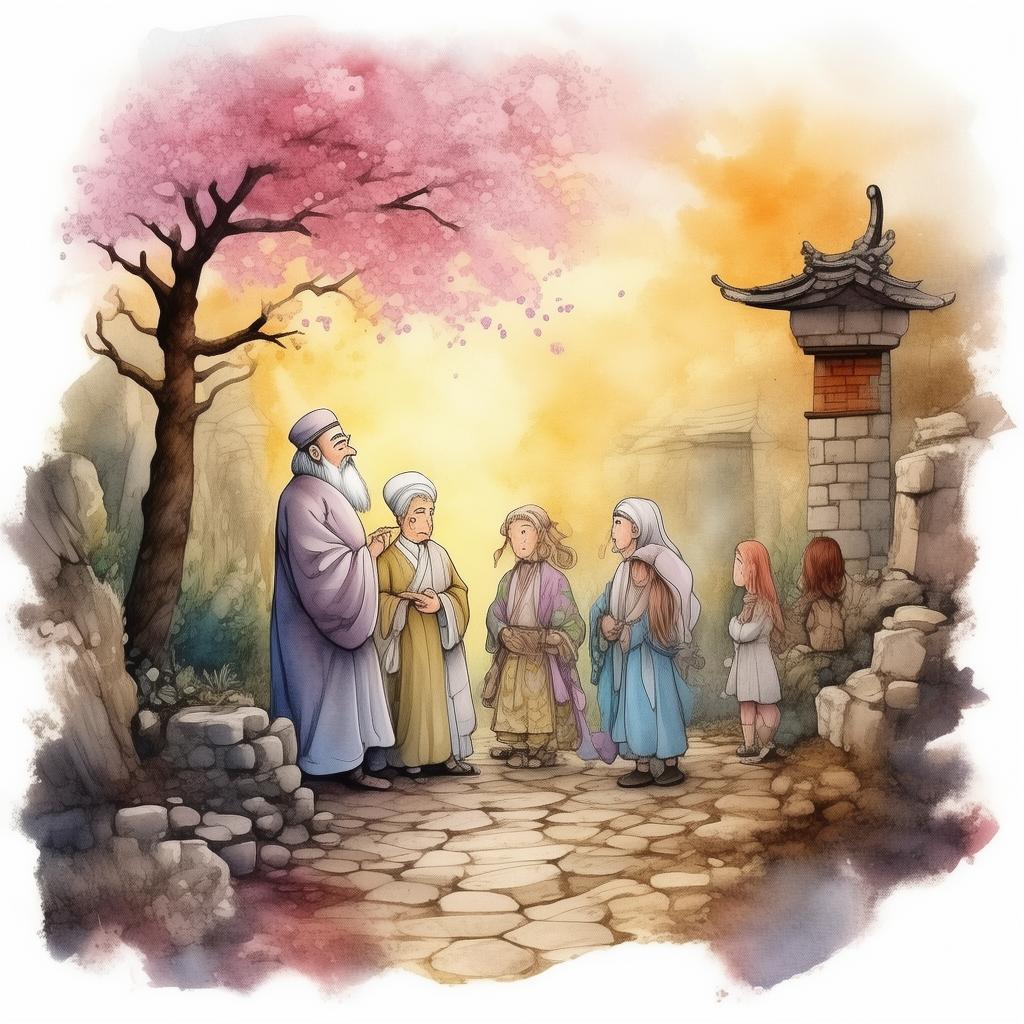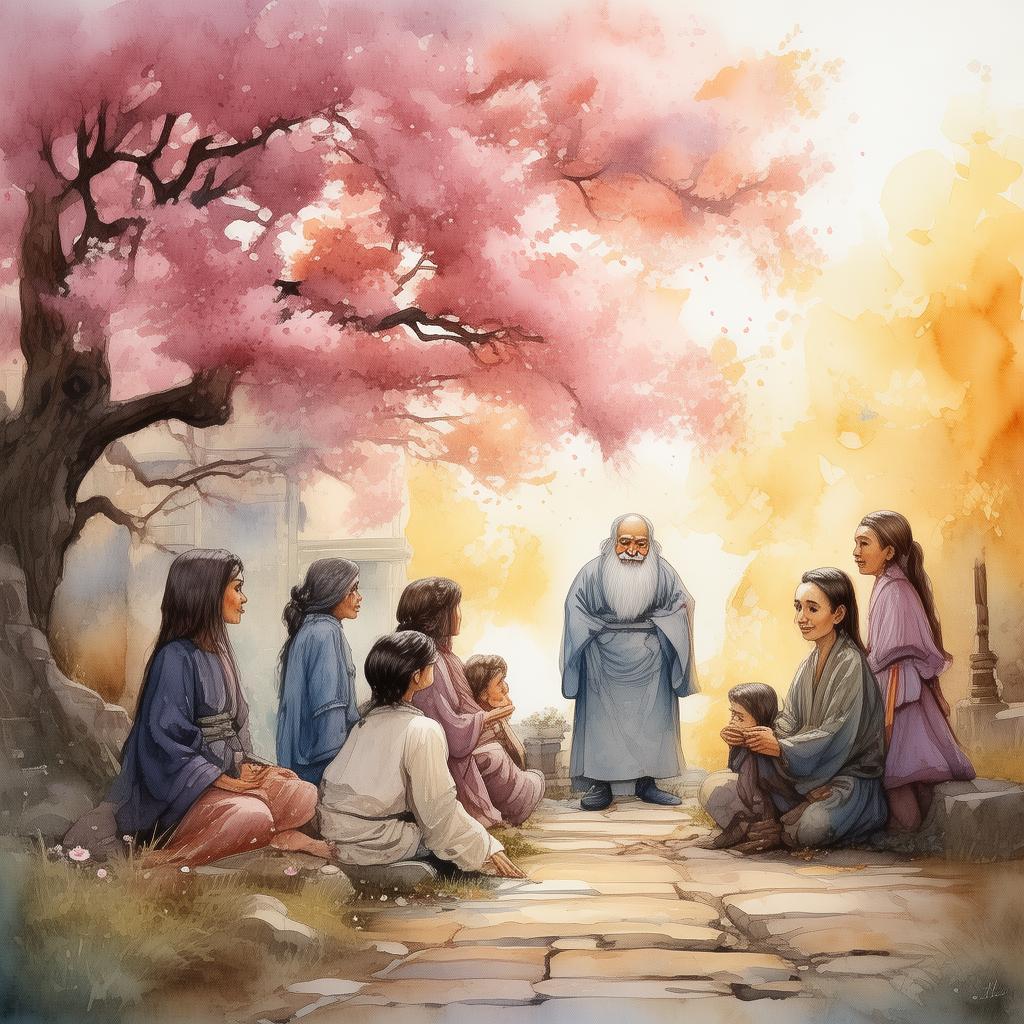The Parable of the Empty Pot: A Tale of Discernment
In the heart of the ancient village of Jing, there stood a temple that was as old as the mountains themselves. This temple was dedicated to the pursuit of wisdom, and every year, a contest was held to honor those who displayed the most discernment among its inhabitants.
The temple’s bell tolled, summoning the people of Jing to gather in the grand hall for the opening ceremony. The hall was adorned with ancient scrolls and intricate carvings, each one telling a story of the village’s history of wisdom and discernment. The villagers, dressed in their finest attire, took their places, eager to see who would emerge as the winner of the year’s contest.
The contest was known as The Clock of the Sages’ Quest, a challenge that required not only intelligence but also an understanding of the deep, hidden meanings within the world’s greatest proverbs. This year, the temple’s abbot stood before the crowd, his voice resonating with gravity as he explained the contest’s rules.
“The contest will be simple yet challenging,” the abbot began. “Each contestant will be given a pot. They must discern what to place inside it to represent the most profound wisdom.” The crowd murmured with excitement, each pondering the possibilities.
The pots were identical, made of the finest ceramic, their surfaces polished to a mirror shine. Each contestant was allowed a single day to prepare their entry, after which the pots would be presented to a panel of wise judges. The judges, an assembly of the village’s most respected scholars, would then decide which pot held the greatest representation of wisdom.
The contestants came from all walks of life. There were the scholars, with their vast knowledge of the written word; the villagers, whose simple ways were steeped in age-old wisdom; and the merchants, whose lives were a testament to their discernment in business. Each took their own approach to the task.
Among the contestants was a humble farmer named Li. Li was known throughout the village for his kind heart and simple life. He owned no lands beyond the modest farm he tilled each day, and he lived a life that was far from the opulence of the merchants or the scholarship of the scholars. Yet, in his eyes, there was a quiet intelligence that spoke of a deep understanding of the world.
Li took the pot and began to think. He thought of the simple life he led, how each day brought a new set of challenges that he met with patience and resolve. He also thought of the ancient proverbs that spoke of wisdom in its purest form: “A journey of a thousand miles begins with a single step” and “To be born is to begin the work of dying.”
With these thoughts in mind, Li approached his task with a quiet determination. He filled his pot not with gold or jewels, not with books or scrolls, but with soil from his own farm. Each scoop he added represented a lesson he had learned over the years: the importance of patience, the value of humility, and the strength that comes from perseverance.
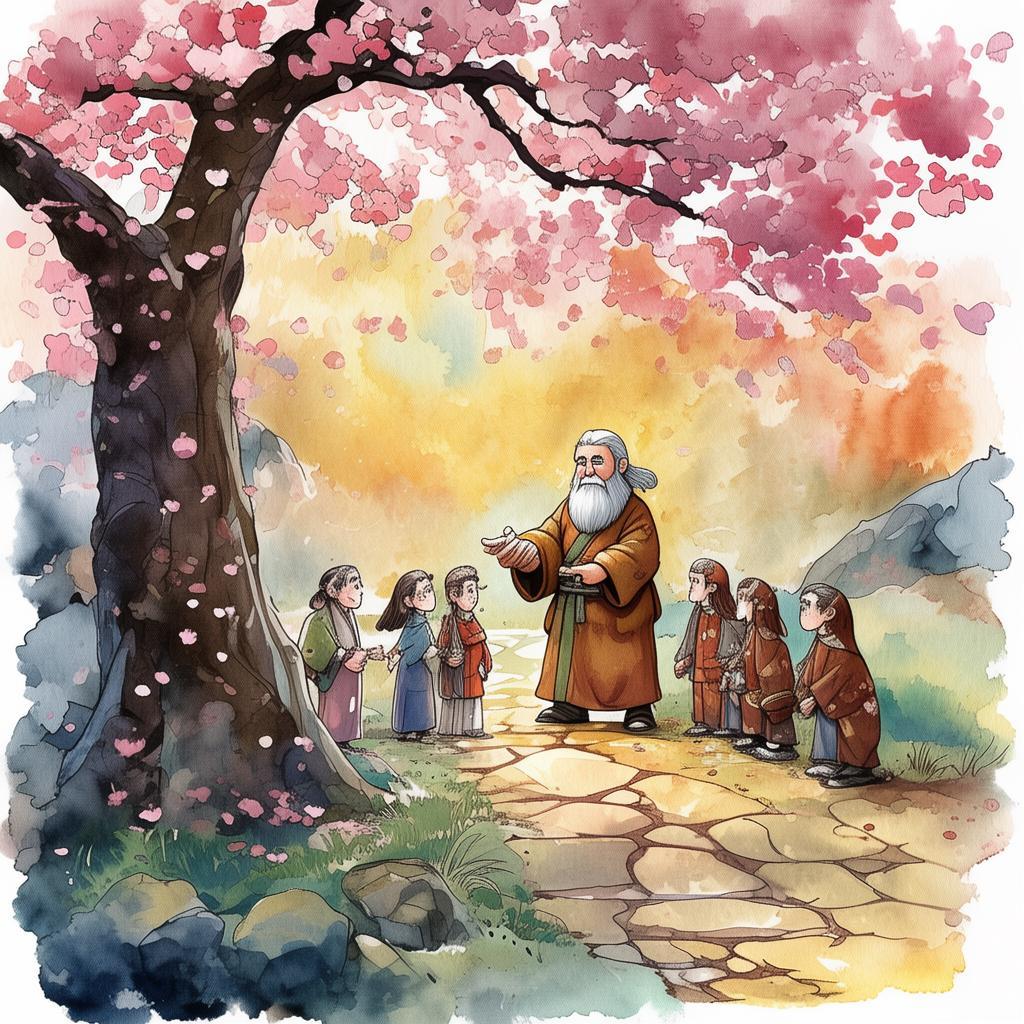
As the day drew to a close, Li sealed his pot and walked it to the temple. He handed it to the abbot, who, in turn, presented it to the judges.
The judges, one by one, took the pots into their hands and began to examine them. The scholars’ pots were filled with scrolls and ancient texts; the merchants’ pots contained rare and precious artifacts. When it came to Li’s pot, the judges were taken aback by the simplicity of it.
They pondered the farmer’s choice and eventually opened the pot. Out poured not only the soil from Li’s farm but also a single seed, which had been planted many years ago by Li’s own hand. The seed represented growth, resilience, and the beginning of life.
The judges looked at one another and nodded. It was clear. Li’s pot held the truest representation of wisdom. He had filled it with the soil of his experiences, the seed of his potential, and the lessons he had learned from his simple life.
The abbot, standing before the crowd, declared Li the winner of the contest. The villagers erupted in cheers, for Li’s simple act had proven that wisdom was not a matter of intellect or wealth, but of discernment and understanding.
The tale of Li and his empty pot spread throughout the village and beyond. It became a parable, a story that reminded people of the value of simplicity and the profound wisdom that can be found in the most ordinary of lives.
The Parable of the Empty Pot taught that true wisdom is discerned not by what one accumulates, but by how one lives and the lessons one takes from life’s experiences. It became a timeless reminder that sometimes, the most profound answers come from the quietest places and the simplest actions.
✨ Original Statement ✨
All articles published on this website (including but not limited to text, images, videos, and other content) are original or authorized for reposting and are protected by relevant laws. Without the explicit written permission of this website, no individual or organization may copy, modify, repost, or use the content for commercial purposes.
If you need to quote or cooperate, please contact this site for authorization. We reserve the right to pursue legal responsibility for any unauthorized use.
Hereby declared.
